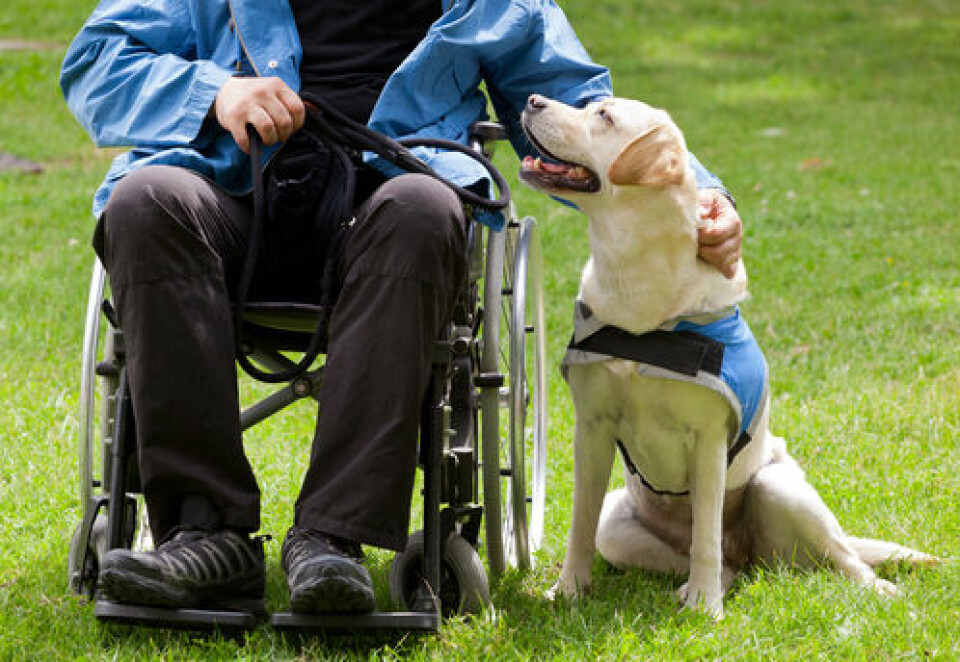-
Grand crème, café crème, au lait: how to order coffee in France?
We explain the subtle distinctions between the various terms used in cafés
-
Spring walks: beware of these French plants that are toxic for dogs - and watch out for animal threats
Cases of poisoning from plants and caterpillars are common during spring
-
Rules change for dog walking in France from April
Here is how to ensure you and your dog remain within the rules and avoid fines
Are guide dogs still allowed to travel between UK and France?
We look at EU rules on travelling with guide dogs from outside the bloc

Reader Question: I read in the UK press that the EU is stopping people coming with guide dogs because they are deemed a health hazard – is this correct?
A recent post published on Twitter claims that since Brexit, blind people in the UK have been unable to travel to France with a guide dog because the EU now classifies the animals as a “biohazard”.
This is not correct.
Guide dogs can still travel to the EU but are subject to the same checks that apply to all pets coming from a third country.
This means that they must have:
- A microchip
- A valid rabies vaccination
- A British Animal Health Certificate (AHC) or, in some cases, an EU pet passport but not if it was issued by the UK pre-Brexit
An AHC is valid for up to four months for a single trip, onward travel in the EU and re-entry. They typically cost over £100. (One Connexion reader has stated that she was quoted £285 for one this year, though this is not typical). This £100 does not include the cost of any vaccinations or treatments the animal might need.
Since Brexit, the UK can no longer issue EU pet passports. It still accepts old British EU pet passports for entry to Britain but they cannot be used for entry to the EU.
People who live in France can obtain a French EU pet passport for their animal, which costs around €15 to €20 and can be used for up to 28 trips, including to the UK, where they are valid.
It should be noted, however, that since Brexit took effect, it is only possible to obtain one of these passports if you and the pet are staying in France for at least three months, which would rule out most visitors / second-home owners, who are only entitled to spend up to 90 consecutive days in the country before having to apply for a visa.
The pet is also meant to be registered with the French pet registry, I-ICAD and no British vet should have any ‘input’ into a French or other EU pet passport for purposes of entry to the EU (eg. any booster vaccinations for the passport should not be done in the UK).
British residents travelling directly to Ireland, Finland, Northern Ireland, Norway or Malta also have to ensure that their dog has had tapeworm treatment between one and five days before entry into the country but this obviously does not affect travel to France.
Carriers are generally obliged to accept assistance dogs that are registered with Assistance Dogs International (ADI) or the International Guide Dogs Federation (IGDF). If your guide dog is not registered with either of these organisations, it may be best to double check how your transport operator classes the dog.
This is because guide dogs are generally allowed to travel for free, while passengers must pay for ordinary pets. Eurotunnel, for example, charges £22 for dogs and cats which are being transported as pets.
You can find out more about travelling to the EU with pets and guide dogs on the UK government website.
Related articles
Reader's tip on pet passport after cat issues boarding UK-France ferry
Why was my dog’s EU pet passport not accepted on UK to France ferry?
Can I get rabies vaccine in UK for EU pet passport issued in France?
























